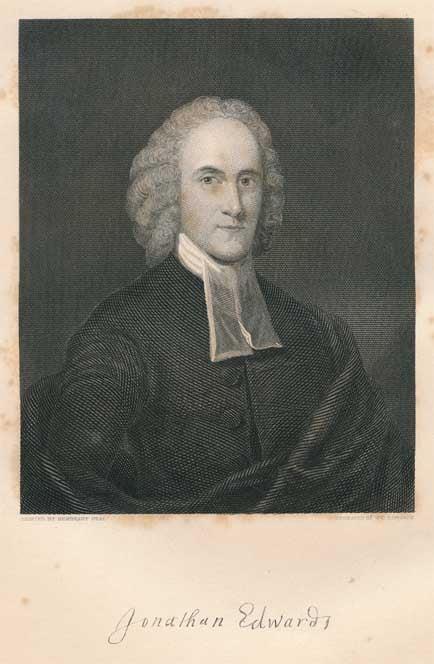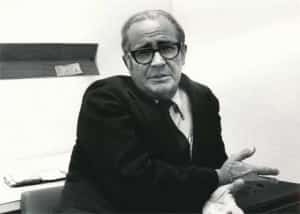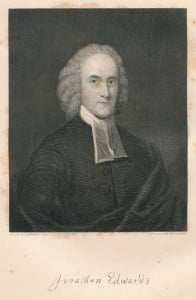A New Scientific Procedure Takes a Spiritual Giant Away
Our focus is not on a Presbyterian per se, but rather a theological giant who accepted an invitation to become the third president of the College of New Jersey, later Princeton University, which was a Presbyterian institution.
 His name was Jonathan Edwards. And at this time, this Congregational minister was easily the greatest Biblical theolgian and philosopher which the American colonies had produced.
His name was Jonathan Edwards. And at this time, this Congregational minister was easily the greatest Biblical theolgian and philosopher which the American colonies had produced.
He had been a pastor. He had experienced the challenge of missionary work among the native Indian tribes. He had an exemplary family life, from which would come,such following generations, many great men of God who served in both church and state. His theological works were famous even then. But best of all, he was the chief architect of the First Great Awakening in the American colonies. In short, there was nothing to dislike in Jonathan Edwards, and everything to rejoice in with this choice by the College trustees.
Now the College of New Jersey had its share of presidents and professors. Jonathan Dickinson and Aaron Burr, Sr., both Presbyterian pastors in colonial America, had taken on the extra burden of being educators of the handful of students who enrolled at the College of New Jersey. Rev. Dickinson lasted all of four plus months in that dual role. And Rev. Burr lasted longer but not more than four years in teaching the small student body. He was the one used of the Lord to make the strategic move to Princeton, New Jersey. Now the invitation went out to Jonathan Edwards, in the fall of 1757, just five days after the death of the school’s second president, Aaron Burr, Sr.
John Brainerd, the brother of missionary David Brainerd, was one of two commissioners who was appointed to press the invitation to Edwards. The latter was most reluctant to receive it. Edwards felt that the book which needed to be written next by his pen was that of one on Arminianism. So it took several days of approaching Edwards until finally, the New England minister, upon consultation with valued friends, replied in the affirmative on September 24, 1757.
He would take several months to prepare himself for the new ministry, so it wasn’t until February 16, 1758 that he was installed as President of the College of New Jersey. He began to speak in chapel and meet with the student body, to the delight of those privileged to sit at his feet.
With small pox prevalent in the area, it was decided to follow a new scientific method and inoculate President Edwards with a small portion of small pox, with the idea that he could then fight off the advances of the disease. However a fever came upon him, and after serving just thirty-four days, Jonathan Edwards died from small pox on March 22, 1758. It was a loss to the College, a loss to the American colonies, and a loss to the kingdom of Christ on earth.
Words to live by:
With a firm dependence on God’s sovereignty, one might be tempted to affirm that God had made a mistake in providence. But there are no mistakes with the holy and wise God. There is only the will of God, exercised sometimes in permissive providence before His people. And this was certainly one example of it. We may not know the reason why our God acts this or that way. But we know the God of the past, present, and future, and so can say, “Thy will be done.”
For further reading : There are those who contend the President Edwards was, at least in principle and heart-affection, a Presbyterian. See, for instance, the account here : President Edwards a Presbyterian.




